Cincinnati is built on big brands and powerhouse companies, but beneath those Fortune 500 giants is a thriving ecosystem of innovators and disruptors that help shape the city's culture.
2020 has been an unprecedented year. Building a company is never easy, but it is most certainly more challenging during a pandemic. That's why this year's nominees for our Inno of Fire awards are being recognized for their resilience, dedication and success despite the adversity presented by the pandemic.
So, what exactly makes a company on fire? We're recognizing the companies that have had a big year — whether that’s new funding, recent product launches, big hires, and of course, innovative approaches to addressing the Covid-19 pandemic. The companies on the list span from early-stage growth companies to some of Cincinnati's biggest tech players.
Winners are organized into seven categories:
- Marketing
- Health care & biotech
- Women-led startups
- Social impact
- Pandemic innovators
- Investor of the year
- Startup of the year.
Winners were sourced by nominations and selected by the Cincy Inno editorial team. Without further ado, here are Cincy Inno's 2020 Inno on Fire nominees. This year's Blazers will be announced in November.
Marketing
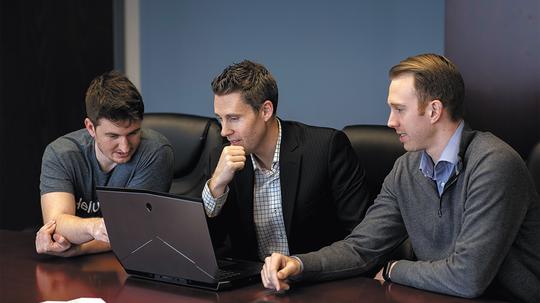
Helium SEO: Helium SEO isn’t your typical digital marketing company. That’s because Helium’s approach to search engine optimization and search marketing is grounded in artificial intelligence and machine learning designed to outperform more traditional agencies. Helium is positioned to grow, having received state tax credits to triple in size over the next three years.
Cartana: Based in Loveland, Cartana is developing a platform to help small-restaurant operators, salons and retail stores transform their businesses to the digital world with a set of technologies. Cartana has grown steadily organically since it launched in 2017. But during this pandemic, that growth went into overdrive, with monthly revenue increasing more than 800% over the same period last year.
Flooid: Flooid, previously known as PCMS Datafit, provides retail software such as point of sale, customer service and customer loyalty offerings as well as a software that allows customers to purchase items online and pick them up in stores. The company's major clients include Walgreens, Shoppers Drug Mark, Waitrose, Marks & Spencer and David Jones. This year, the company signed on Diane Palmquist as its CEO of North America and expanded into Canada.
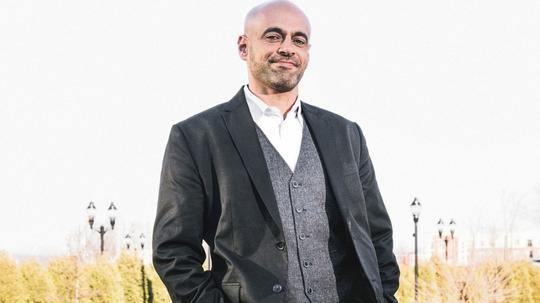
Cerkl: Cerkl, a 22-employee startup, offers clients employee-outreach resources like tailored email newsletters, a personalized intranet and an immersive mobile experience. These solutions work almost like Netflix or Spotify; the technology learns what users engage with and enjoy, then disseminates more of that content to them. Cerkl counts TriHealth, Cincinnati Children's Hospital, St. Elizabeth Healthcare, the Cincinnati Museum Center and Standard Textile among its customers locally.
Health care & biotech
Enable Injections: Enable Injections is an investigational-stage, combination product company with a novel drug delivery technology, enFuse. The enFuse has the potential to allow patients to safely, conveniently and cost-effectively self-administer therapies outside of a clinical facility. In September, the company inked a deal for a $25 million credit facility to help it scale its manufacturing capabilities.
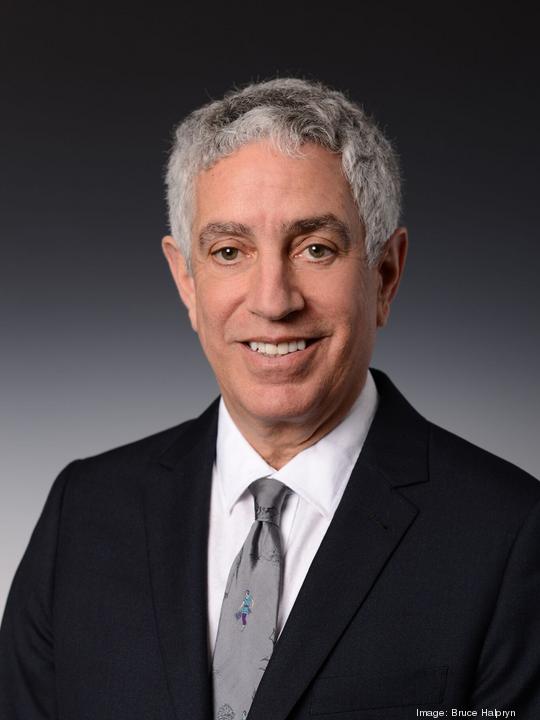
Eikonoklastes Therapeutics: Launched this summer, Eikonoklastes Therapeutics is new to Cincy's startup scene and aims to treat cancers and other diseases using novel immunotherapies. It's led by CEO Bruce Halypn, a 27-veteran of Procter & Gamble, and closed an oversubscribed round of seeding funding in July. In September, the upstart company named Tom Finn, the retired P&G president of global personal health care, to its board of directors, giving it further credibility within the industry.
Airway Therapeutics: Airway Therapeutics kicked off 2020 in a big way — closing out a $15.5 million capital round. The Cincinnati Children's spin-out aims to develop ways to prevent and treat lung disease. As a result, the Sharonville-based biotech announced in March it was partnering with the National Institutes of Health to determine if its drug, AT-100, might be used to treat Covid-19.

IncludeHealth: IncludeHealth is a digital health platform that pairs HIPAA-compliant cloud software with inclusive rehabilitation equipment to lower the barriers of maintaining physical health while optimizing care. Founded by University of Cincinnati alum Ryan Eder, the company is set to open an innovation lab at the school's 1819 Innovation Hub this year. That puts IncludeHealth close to Cincinnati Children’s Hospital, which it partnered with in December to commercialize the movement correction technology known as aNMT (pronounced animate, short for Augmented Neuromuscular Training).
Women-led startups
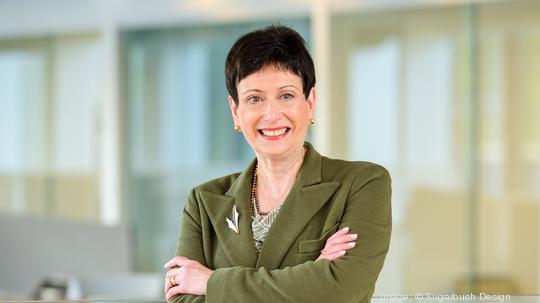
Kurome Therapeutics: Kurome Therapeutics is a spin-out company of Cincinnati Children's and is led by Jan Rosenbaum, who spent nearly 23 years as a scientist with Procter & Gamble Co. Rosenbaum also serves as the startup's chief scientific officer. Kurome's team is currently working to develop a drug that prevents cancer cells from surviving the effects of chemotherapy drugs allowing for more effective cancer treatment.
See Word Design: See Word Design's mission is simple but not small — help every individual learn to read. The Cincinnati startup is the brainchild of co-founder Renee Seward, whose son struggled with dyslexia. Its first product, an app called See Words: School, uses graphic design elements to reinforce what’s learned in the classroom with interactive tracing activities, spelling and engaging stories that can be personalized to your own curriculum. The company has since gone on to launch See Words: Home, which helps parents teach their children to read, and See Words: Anywhere, a Google Chrome extension that helps struggling readers.

Peerro: Billed as a LinkedIn alternative for young workers, Peerro is a five-year-old startup led by founder Rachel Angel. Peerro allows employers to create pathways for young people that lead to job interviews. It could be a short pathway, like interviewing with a current cashier at a grocery store to learn what the job is like and how to do it, or a longer pathway that requires specialized training or a certification. Each pathway ends in an interview with the employer who created it. In July, the company landed an undisclosed investment from CincyTech.
Moxie Girl: Founded by Lydia Henshaw, Moxie Girl offers online goal-setting tools, mentorship and other confidence-building resources to teen girls through their schools and trusted health care providers. The startup was a member of Flywheel Social Enterprise Hub’s fourth accelerator cohort that ended in February, and it received Miami University’s Social Impact Fund first investment.
Social impact
GreenLight Fund: GreenLight Cincinnati seeks to aid low-income children, youth and families in high-poverty areas by identifying critical needs, importing innovative nonprofits to address them and supporting those initiatives so they can have the most impact. This year, the organization raised $3 million for a new fund and named Clare Zlatic Blankemeyer its executive director.

Wunderfund: Wunderfund was created as a platform to allow ordinary people to invest in projects or businesses. Like similar platforms such as Kickstarter or GoFundMe, Wunderfund lets people give money to businesses they deem worthy. But unlike Kickstarter or GoFundMe, Wunderfund makes them equity investors in those businesses, without having to be the typical high-net-worth individual that ordinarily makes equity investments.
Main Street Ventures: Main Street Ventures has been a fixture in Over-the-Rhine since 1999, but it's best known for creating the Brandery accelerator to help startups leverage Cincinnati's branding and marketing talent to create consumer-facing brands. The running of the Brandery was taken over by the Gener8tor network out of Milwaukee in 2018, and Main Street Ventures reinvented itself again as a source of funding for early-stage startup events that supported the ecosystem and groups that boosted the tech economy. Since 2018, the organization has awarded nearly $900,000 in grant funding to 38 companies, including providing $260,000 in Covid-19 relief funding to The OTR Chamber’s “OTR Back on the Rise” Campaign and the NKY Restaurant Relief Fund.
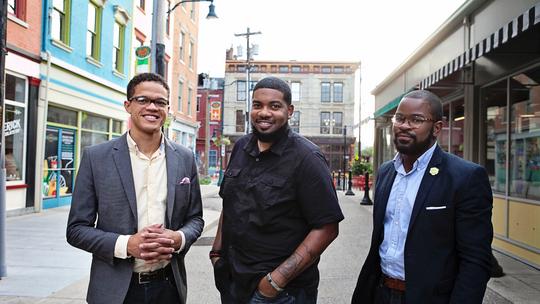
Mortar: Mortar was created by three Black Cincinnatians to help residents of developing neighborhoods, often minorities, advance alongside their community. It provides a curriculum to help entrepreneurs learn how to start, plan and operate their own business, as well as access to mentors and resources to help them along the way.
Pandemic innovators
Neu-Tech Energy Solutions: Terrace Park-based Neu-Tech Energy Solutions has been creating a variety of high-tech, bacteria-killing lights to fight MRSA, Staph, Strep and now Covid-19. Neu-Tech says its blue lights have decontaminating potential since various wavelengths in the blue spectrum are anti-microbial against a wide range of bacteria. The company also says that the lights are safe to be used around both humans and animals, but the strength of the UV lights means no one can be in the room when the lights are operating.
StudyHall: When the coronavirus pandemic hit, schools across the country closed and transitioned to remote learning. Seeing the need to keep students from falling behind, StudyHall has had 230 students register across 42 schools in Greater Cincinnati since registration began in early September. StudyHall has raised more than $300,000 in funding in direct support of its mission to provide free online 1:1 homework help to the students who need it most since its inception in March.
Polar3D: In April, as the nation faced a crunch for personal protective equipment, Polar3D helped transform Over-the-Rhine's Union Hall into a hub for its 3-D printers to create more than 2,000 face masks per week. Funds for the 3-D printers and the production of masks was seeded with $40,000 from the InfoTrust Foundation.
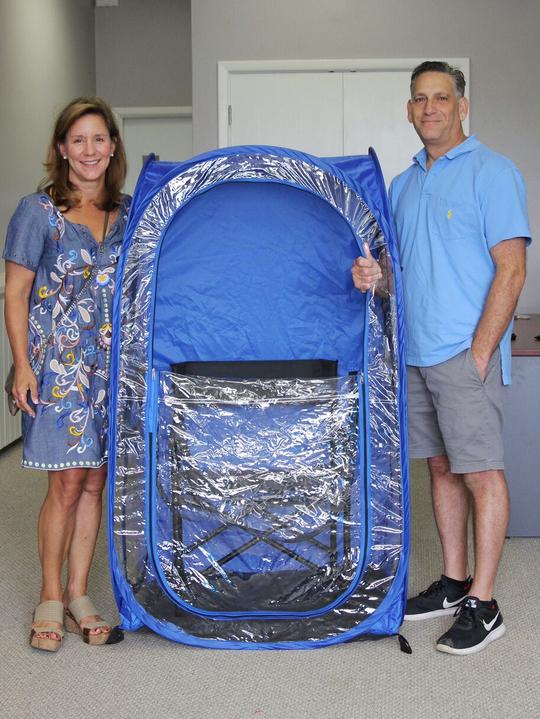
Under the Weather: Under the Weather, a Cincinnati startup that's appeared on "Shark Tank," is best known for its pods designed to protect users from the elements. This year, the company pivoted and launched its "Intubation Pod," a smaller version of its "Walking Pod" that was marketed as a way to protect frontline workers interacting with Covid-19 patients. The company also launched a "Desk Pod" to protect those working in an office. Fast Company named the "Intubation Pod" a finalist for its most innovative health projects of 2020.
HeyHerbie: HeyHerbie is a consumer electronics company that adapts any TV into a video-chat system. Its technology is seen as a way to help older adults combat the social isolation they may experience during quarantine. The company recently joined Connecticut-based Upward Labs's third cohort, which brought together companies that address the health and operational issues recently amplified by Covid-19.
Investor of the Year
CincyTech: CincyTech is a longtime provider of critical seed capital to startups based in Cincinnati, often among the first investors in to support young companies with promising technology or innovations. The group is partially funded by the Ohio Third Frontier and requires companies that receive investment remain active with a presence in the region.
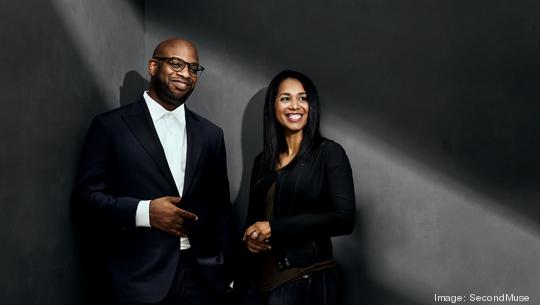
Lightship Capital: Lightship Capital launched a $50 million fund this summer and is breaking historic new ground in its effort to fund minority-led startups. The firm, founded by Brian Brackeen and Candice Matthews Brackeen, has closed $26 million to date and seems bullish about establishing a larger physical presence throughout the Midwest, with plans to add an office in Indianapolis next year. Candice Brackeen, also the founder and CEO of the Hillman Accelerator, was listed as one of Entrepreneur’s 100 Powerful Women of 2020.
Allos Ventures: Allos' sweet spot is in business-to-business software and tech-enabled companies in the Midwest that need Series A or B financing. It fills a critical need for capital in early-stage companies that are not mature enough to attract investment in the tens of millions from larger coastal firms. The firm recently launched Sixty8 Capital, a new effort to provide seed-stage funding for Black, women and LGBT founders. Sixty8 Capital is being co-managed by Paul Ehlinger, a principal in its Cincinnati office, and Kelli Jones, who joined Allos in August and is based in Indianapolis.
Connetic Ventures: Connetic Ventures is a Covington-based venture capital firm that makes early-stage investments in companies across much of the U.S., mainly in the Midwest, Southeast and Southwest. It uses data and artificial intelligence to help it analyze companies and teams and to make investment decisions. Connetic raised a fund of nearly $30 million in 2019, giving it capital to invest in about 80 companies.
Startup of the year

Frayt: Cincinnati-based shipping startup Frayt hasn't let the pandemic slow its growth. In fact, it's accelerated it. Frayt's demand has skyrocketed 400% month-over-month since the end of March. By the end of 2020, the company expects to eclipse $3 million in annual recurring revenue — a figure that should jump to $5 million during the first quarter of next year.
Helium SEO: Helium SEO, a fast-growing digital marketing company, will triple in size over the next three years, with plans to hire 120 employees in Greater Cincinnati. The Blue Ash-based firm's revenue hit $3 million in 2019 and is projected to be well over $6 million this year.
Luma Technologies: It's been a big year for Luma Technologies. In May, the Cincinnati fintech raised $7 million. In September, Luma received nearly $1 million in state tax credits to help double its employment headcount. Driving the need for all those additional employees is the massive growth Luma has had in providing a technology platform for investment advisers to access and compare structured products and annuities.

Vndly: If there's something Deerfield Township-based Vndly knows how to do, it's raise capital. This year, the artificial intelligence startup received an undisclosed minority investment from San Francisco-based Okta and added another $8.5 million to its $35 million Series B round. Founded by former Kroger exec Shashank Saxena, Vndly routinely ranks among the region's best-funded startups.
80 Acres: 80 Acres isn't slowing down. In September, the company announced three new additions to its leadership team, snagging executives from Walmart, Dole and the Silicon Valley startup scene. The goal — scaling the business. The vertical farming company also is nearly complete with its latest construction project, a $30 million, 70,000-square-foot farm in Hamilton.
Editor's note: Eccrine Systems is no longer an operating company. It was removed from this list.



